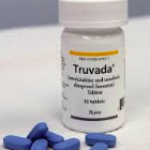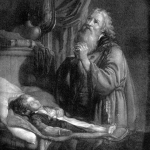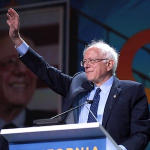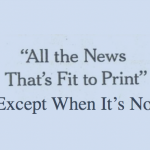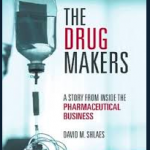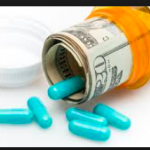Sometimes groups or individuals propose breaking the patent on an important drug because it's too expensive. This is not the right way to hold down drug prices, because it will hold down innovation. Breaking a patent is theft, no matter how you look at it.
Drugs & Pharmaceuticals
In the never-ending campaign to demonize any drug that could possibly be abused, a physicians group at the University of Pennsylvania claims that music is a viable alternative to Versed (a benzodiazepine) in calming patients before outpatient surgery. But it is not. All you have to do is read the paper and this becomes obvious. Better orthodoxy, worse medicine.
The problem of high drug prices is multifaceted and complex. Referring to the pharmaceutical industry employing "crooks" might be good for some cheap applause, but it's demoralizing to the thousands of scientists who work in it. Senator Sanders should apologize.
Just what we don't need: Another anti-opioid (pro-pain) zealot spreading the false gospel. But we have one anyhow and his name is Jerome Adams, M.D, the U.S. Surgeon General. Adams cites a 2015 paper -- from an emergency department in Tehran, Iran as evidence! -- that IV Tylenol works as well as morphine. Too bad the paper doesn't say that. Or anything else either.
New York Times science writer Gina Kolata usually gets it right. But her recent article "10 Medical Myths We Should Stop Believing. Doctors, Too" scores only 9/10. Ms. Kolata used a study that concluded that Advil and Tylenol are as effective as Vicodin or Percocet in treating acute pain. But the study itself is a myth.
The development of new antibiotics is as much about money as it is about science. ACSH advisor Dr. David Shlaes writes about biotechs, IPOs, disappointed investors, market cap, and CEO egos.
The CDC just released "Provisional Drug Overdose Death Counts," which seems to imply that opioid overdose deaths are falling for the first time. Some will doubtlessly take credit for ending the opioid crisis. But they shouldn't.
Scientists from two universities and the National Institutes of Health are developing a vaccine to defeat norovirus' defense mechanism: mutation. By targeting a "conserved region" -- the part of the viral capsid that does not mutate -- they have discovered an antibody that may cover most strains that circulate now, as well as those that might circulate in the future.
Predictably, Big Pharma is resisting the call to include pricing information to their advertisements. A lawsuit and the testimony of the expert make a good case ... for not running the ads at all.
Harvard's Chris Gerry, Ph.D. has previously written about Zolgensma, the world's most expensive drug, and some of the economics behinds its price. Is Zolgensma, the only treatment for spinal muscular atrophy, too expensive, a bargain, or somewhere in between? As Oscar Wilde once said, “the truth is rarely pure and never simple.”
In his second article of a series, Harvard's Dr. Chris Gerry expands the discussion of his first piece, "The Science of Zolgensma, The World’s Most Expensive Medicine" and considers whether Zolgensma merits a price tag of $2.125 million. A look at some of the ethics and complexities of drug pricing.
Recently, the FDA met to discuss CBD, the non-psychoactive component of marijuana. It made us realize that we'd never really considered the definition of a drug. Any process involving lawyers hinges on the meaning of words, so what actually does the FDA regulate?
